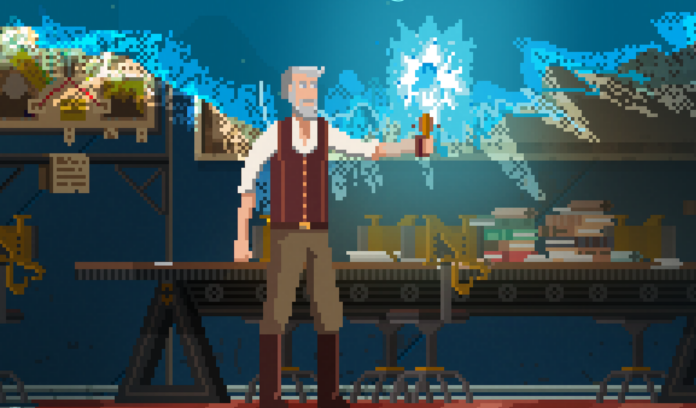The Jules Verne Museum in Nantes, his hometown, has recently selected the game Verne: The Shape of Fantasy to be part of their collection.In Verne: The Shape of Fantasy players take on the role of famous sci-fi writer Jules Verne and venture into a fantastical, parallel world built from his own imagination. Development studio Gametopia has translated their love and admiration for the works of the author into an original tale, told through a pixel perfect point-and-click adventure. “The influence of his work on our culture is enormous. We wanted to pay tribute.”
Daniel Gonzáles, co-founder of Gametopia did not have to look far for inspiration. “When I look back, I see myself as a child reading Jules Verne and imagining these incredible worlds”, he says. “I can’t imagine the world without Verne, without his stories, without his predictions. Practically everyone on the planet knows Nemo and the Nautilus, even if they have never read Verne. At Gametopia, we wanted to share our love for his work.”
Continents apart
Gametopia was founded in 2016 by Daniel Gonzáles and Diego Adrada. At first glance a normal indie game studio, but the co-founders live and work continents apart. Gonzáles is based in Madrid, Spain, where he met Adrada ten years ago, when he came over from Bogota, Colombia to do a Master’s degree at the University. Gonzáles was teaching there and quickly realized Adrada’s talent for programming and business. “We did some collaborations and as things went very well, we took the leap to start a company”, says Gonzáles. “With today’s technology it is very easy to work with anyone at a distance, you just need people to be responsible. Having a decentralized structure allows you to work with great professionals wherever they are. Of course, in my case I have to adapt to complicated working hours.”

Verne: The Shape of Fantasy has been out since the summer and sales have been steady but not spectacular. “For us, Verne is just taking its first steps. We think it is a timeless game, both for the pixel art and for the theme of the game”, says Gonzáles. “We are a very, very small indie studio working with a publisher (Assemble Entertainment) that cares about its titles, but is also small. So sales are what they are. We’re not worried about recouping the investment in the first few months. If it takes a couple of years, that’s fine with us.”
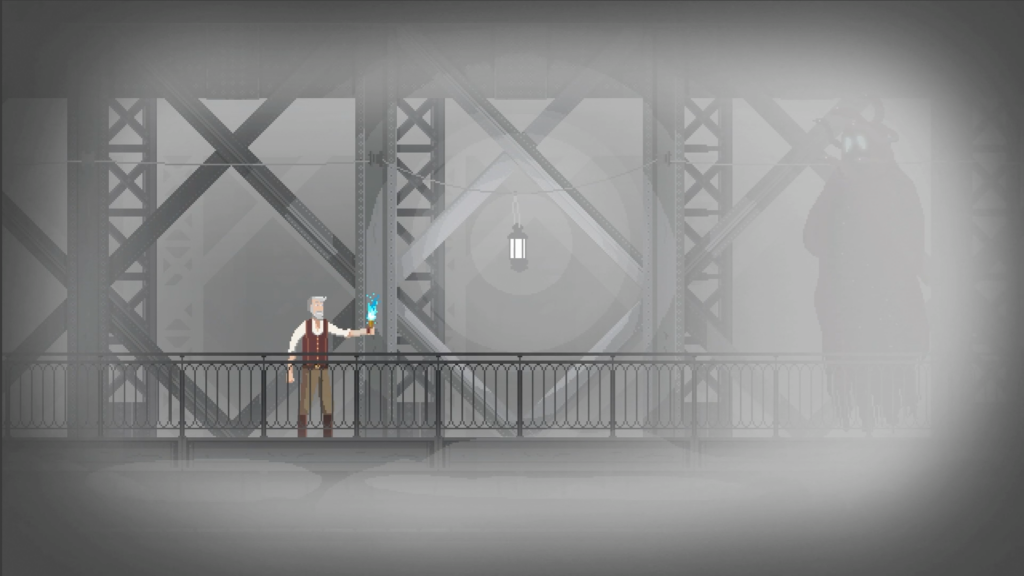
Passion for Exploration
The team is pleased with how the game turned out and especially the sense of exploration it evokes. “One of the things I like most about Verne’s novels is the passion for exploration and the attention to detail. I think in our game we were able to get players to want to explore all the scenarios and look at the little details that are hidden in them. It was important to give the player time to explore, to wonder, and to feel the magic of the unknown.”
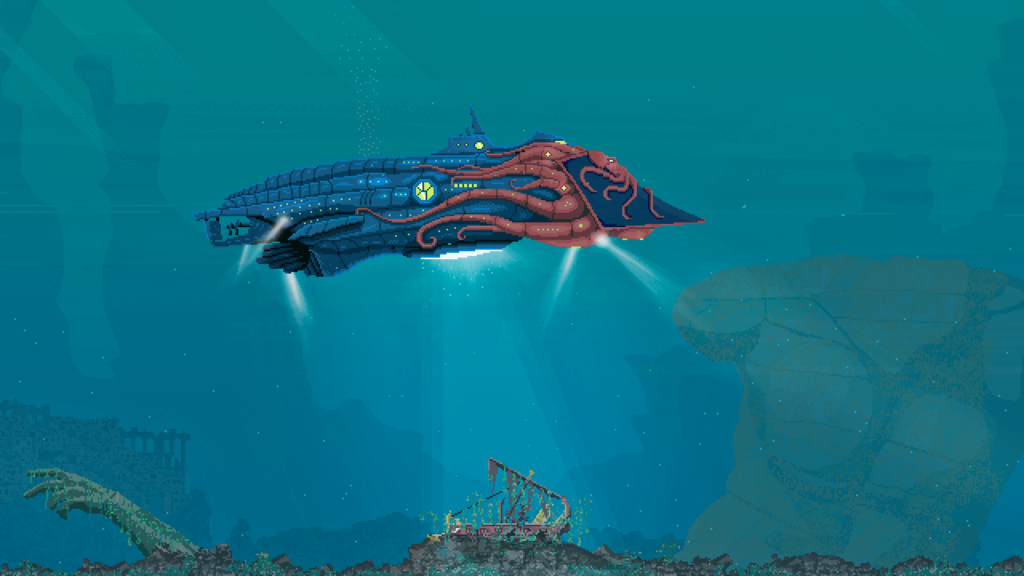
The use of pixel art reinforces the sense of discovery Daniel Gonzáles felt when he read the Verne novels or played the old LucasArts adventures for the first time. “This graphical style is perfect for Verne’s worlds, because it conveys that elegant feeling of nostalgia for being surprised again”, he says. “One of the things that fascinates me most about pixel art is that you are working with concepts, like working with Lego pieces. What you create is a representation of a concept, an emotion. And the player’s imagination completes the rest! That’s a wonderful thing.”
It starts with an emotion
But making the pixel art look good took quite a bit of effort. “Getting a good camera and making sure everything looks just right is something that took a lot of time”, Gonzáles admits. “We used assets from the Unity store, which helped us to improve our camera. But it was far from perfect, so we had to do a lot of little scripts to get the performance we wanted. This is one of the things I like least about Unity. Projects are developed by relying on third party solutions and this makes you even more dependent. Something that concerns me as a company.”
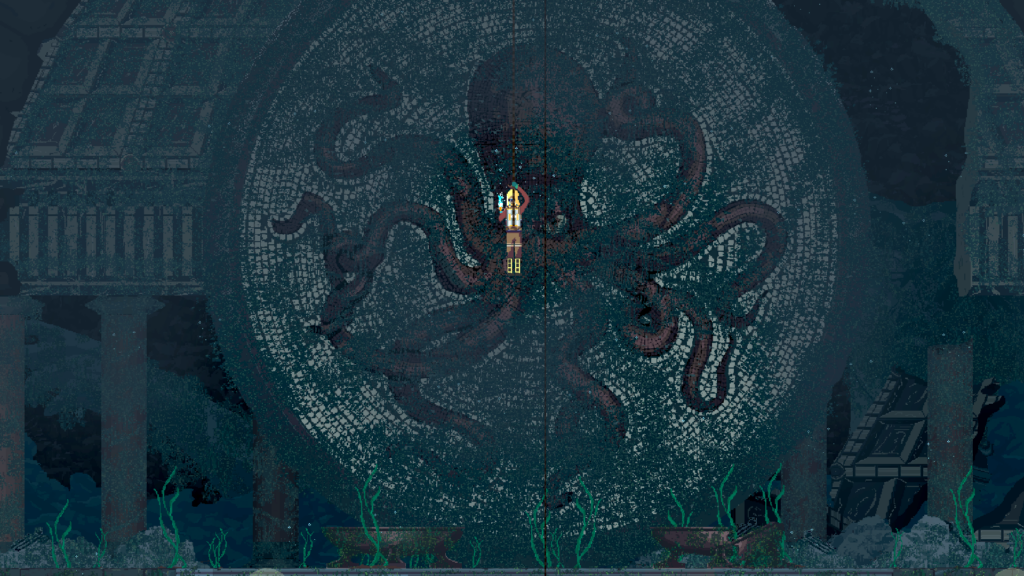
The game is obviously based on the many works of Jules Verne, but the story that it tells is an original one. Gonzáles shares how game development is a highly collaborative process for him. “The creative process always starts with an emotion, what do you want to convey? What is the story really about? And from there we make a detailed script, then a level design and start prototyping. My ideas are nurtured and grow based on feedback from my colleagues. Everyone contributes from their area of expertise. I like that there are different voices and different points of view within the same project, it enriches it.”
Doubt yourself
With Verne being their most ambitious title yet, the founders of Gametopia have learned some lessons along the way. One is to stay focused on the end result and don’t let yourself get distracted. ”It’s natural to have doubts during development. After several years of working on the same project you start to doubt yourself. The problem is that everyone has an opinion, the players at the shows, the publisher, your close friends who test it. And there is no good or bad opinion. It’s just if you get involved in it, you’ll never finish.”
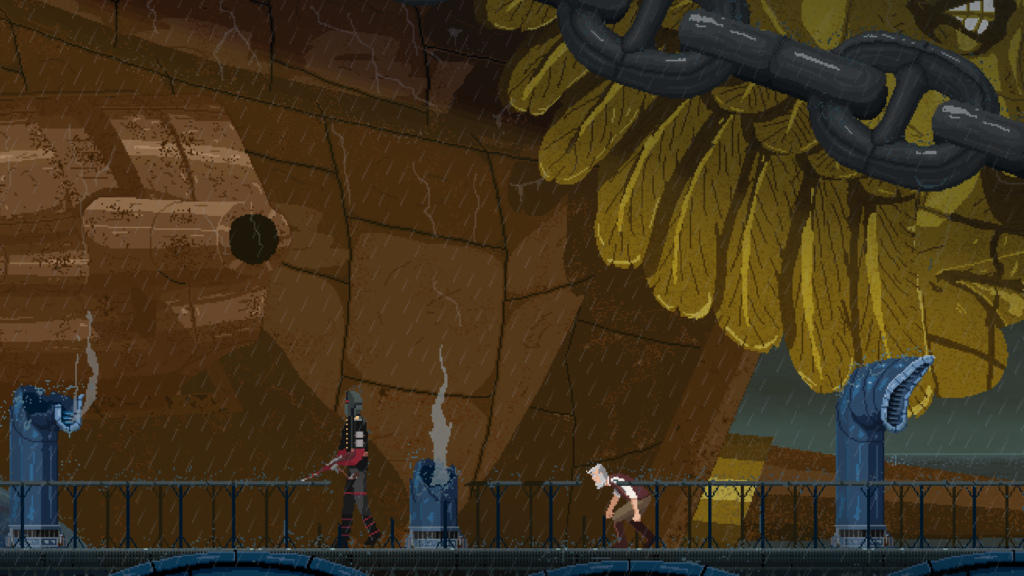
Another great lesson is that you can’t please all the people all the time. “Especially when you make a game for a specific audience like ours”, says Gonzáles. “When the game gets into their hands, they love it. But when the game reaches a person who doesn’t like this kind of narrative and adventure games, then the bad comments happen. When we launched the game, the first media reviews were not good and it filled us with doubt. But then the positive reviews and comments poured in. It taught us that not everyone is going to like you, and you have to live with that.”
World of Astophysics
The team at Gametopia is already working on their next title. “Our current project maintains the same philosophy. We have left literature behind and entered the world of astrophysics, which is my passion. This new project is much more ambitious and bigger than Verne”, concludes Gonzáles, smiling.
The game is out on Steam and Nintendo Switch.

